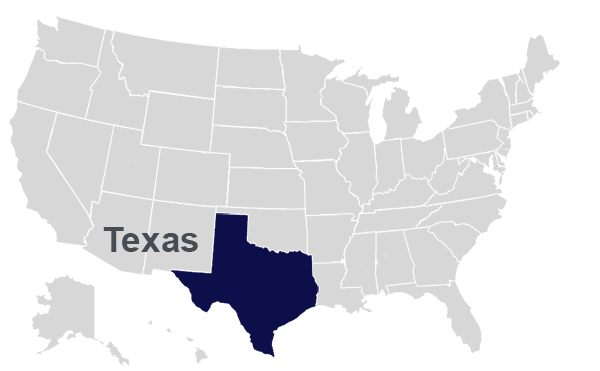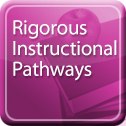Educator Evaluation and Support Systems (Teacher and Principal)
As part of its conditionally approved ESEA Flexibility Request and, in the case of principal evaluation, bolstered by state legislation, the Texas Education Agency (TEA) is piloting new teacher and principal evaluation and support systems. During Year 2, TXCC assisted TEA in the facilitation of steering committees of educators and stakeholders in revising teacher standards and in developing new evaluation/observation rubrics in collaboration with TEA's vendors, NIET and McREL. Year 3 work focused on pilot implementation and feedback collection. Year 4 will expand the state's pilot of the new systems. TXCC will support the Agency's rule revision process and facilitate a formative feedback collection strategy designed to gauge progress in preparation for full implementation of the new systems in 2016-2017.
Teachers Project Updatees 2014–2015
Principal Project Updatees 2014–2015
Project website Teacher Evaluation and Support System
Previous Work Updates
2016
July
TXCC staff collaborated with with Texas Education Agency (TEA) staff to plan for the Year 5 work including the Spotlight studies. Year 5 planning included multiple meetings focused on the needs of both the teacher and principal evaluation and support systems. During the Spotlight study planning meetings, three rural districts with a history of success were identified with a fourth district pending inclusion. Interviews will be conducted in these districts to identify possible common themes leading to their success. This information would be shared in a report as well as in other formats.
June
The Texas Education Agency (TEA) released a new human resources personnel survey designed to capture central office staffs’ perceptions and feedback on the implementation of the Texas Teacher Evaluation and Support System (T-TESS) and the Texas Principal Evaluation and Support System (T-PESS). These additional data will provide robust information on how districts are experiencing and implementing the new system. The information collected should be useful to TEA as it prepares for full-scale implementation in the fall of 2016. In addition, TXCC, in collaboration with TEA, designed and implemented the first T-PESS survey. This survey was designed to gather information on the effectiveness of the system’s implementation in refinement districts. Data from this survey will inform changes in training and implementation at the state and education service center (ESC) levels for the 2016-17 school year.
May
TEA and TXCC collaborated together to complete another survey targeted towards central office personnel. The purpose of the new survey is to understand district perceptions about the T-TESS process. The survey will launch in June. A spring survey, similar to one launched in the fall, was also administered. This survey asked appraisers and teachers participating in T-TESS about their experiences with training, observations, and goal-setting and professional development. Since the survey asks respondents to comment on the entire year long T-TESS, TEA anticipates it will be able to identify areas for refinement and components of the process that are successful. TXCC staff also continued to work with TEA to refine surveys for the Texas Principal Evaluation and Support System (T-PESS). The revised goal is to complete the surveys by the first week in June in advance of administration in late June.
April
Staff from the Texas Education Agency (TEA) and TXCC met to discuss survey reporting needs for the end-of-year spring survey for the Texas Teacher Evaluation and Support System (T-TESS). AIR’s expert data automation staff actively participated in these conversations to ensure that survey items of importance to TEA could be analyzed at the conclusion of the survey window. TEA has been pleased with the level of data TXCC has been able to provide. Also in the planning process is the development of a new survey targeted towards human resources personnel. TEA is interested in hearing the views and perspectives of key central office staff as they helped lead T-TESS work during the refinement year in their districts. TEA anticipates that it will begin collecting this additional understanding in June.
March
TXCC completed its analysis of the fall teacher and appraiser surveys administered by the Texas Education Agency (TEA). The survey was completed by district and school staff who are implementing the Texas Teacher Evaluation and Support System (T-TESS) for the first or second year. Overall, most respondents like T-TESS and the process. Those respondents who were favorable towards the rubric were also favorable towards the professional development component. Finally, staff were most likely to attend district-led training. Respondents who felt prepared to implement T-TESS after the training were more likely to self-assess, and those whoself-assessed felt more prepared than those that didn’t, regardless of what year of T-TESS implementation they were in (first or second). Likewise, TXCC staff continued to work with TEA to refine surveys for the Texas Principal Evaluation and Support System (T-PESS). The goal is to complete the surveys by the end of April deadline in advance of administration in May and June. To support education service center (ESC) staff in T-PESS implementation, TXCC also helped TEA coordinate a training for 69 ESC consultants in March. This session provided ESCs with a foundation in McREL’s Balanced Leadership Framework, a model that integrates research findings on effective principals with strategies for improving school-level leadership.
February
The Texas Education Agency (TEA), in collaboration with Region 13 Education Service Center (ESC), kicked off six planned focus groups around the state for the Texas Teacher Evaluation and Support System (T-TESS). ESC 13 and TXCC staffs plan to visit regions 1, 6, 8, 12, 17, and 20 during February and April. The purpose of the focused conversations is to continue collecting input from those implementing the new teacher evaluation system. The feedback and an understating of LEAs’ perceptions will to help inform future changes to training, resources, and district- and campus-level implementation of T-TESS. TEA also refined the principal and principal appraiser surveys designed to gather data about the implementation of the Texas Principal Evaluation and Support System (T-PESS) during the refinement year. The data will be used to support the rollout of the T-PESS system through aligned professional learning opportunities.
January
The 2015 T-TESS fall data was analyzed this month. TXCC and Texas Education Agency (TEA) staff will begin conversations about local district staff perceptions and usefulness of the new teacher evaluation rubric in February.
2015
December
The Texas Education Agency (TEA) closed its 2015-16 T-TESS fall survey this month. Next steps include analyzing the survey responses and determining whether district T-TESS implementation perceptions differ across localities. Also, TEA plans to collect additional input from districts by holding focus groups in early spring. These conversations will help TEA understand how aspects of the system are being implemented, what works, and what areas may need refinement.
November
The Texas Education Agency opened its 2015-16 T-TESS fall survey this month to districts participating in the refinement year. This includes districts trying T-TESS for the first time as well as districts that implemented the new teacher evaluation system last year. To date, over 30 percent of participating school and district staff members have completed the survey with over 76 percent first-time T-TESS respondents providing input. The purpose of the survey administration is to collect feedback from LEAs on their perceptions and usefulness of the system.




